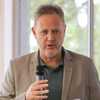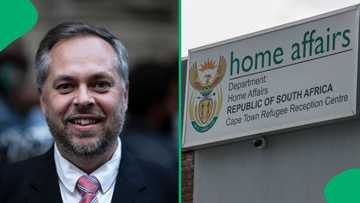Explainer: Economist weighs in on Tito Mboweni's Budget Speech
- Finance Minister Tito Mbowbeni recently addressed South Africa on his plans moving forward
- Dr Kenneth Creamer, an economist from Wits University, weighed in on the speech
- Briefly.co.za explores how the Budget Speech will affect South Africans
PAY ATTENTION: Click “See First” under the “Following” tab to see Briefly.co.za News on your News Feed!
Finance Minister Tito Mboweni's 2020 Budget Speech was well received by many South Africans.
Briefly.co.za spoke to Dr Kenneth Creamer, an economist from Wits University, who provided some insight into the address.
Creamer explained that one of the most pressing issues is that infrastructure spending is being elbowed out of the way:
"In general, a major problem is that government infrastructure spending is being crowded-out not only by a rising public sector wage bill and poorly performing state-owned companies, but also by a lack of economic growth due in large part to a shortage of electricity."
Eskom's stability has been highlighted as crucial to the nation's economic recovery says Creamer:
"As Minister Tito Mboweni stated in his budget speech, restoring sufficient electricity supply is South Africa’s number one priority to achieved increased economic growth, jobs and investment. Tito Mboweni made it clear that government will “do whatever it takes” to resolve South Africa’s energy crisis and has allocated a large amount of resources towards achieving this goal."
The expert says these comments must be compared to those made by President Ramaphosa:
"Tito Mboweni’s commitment to overcome South Africa’s electricity shortage must be read together with the President’s commitment in the State of the Nation Address (SONA) and the Minister of Mineral Resources and Energy’s post-SONA statement which signalled that government will rapidly implement South Africa’s Integrated Resources Plan (IRP 2019) and enable expanded utility-scale energy projects, own-generation by South African companies and electricity procurement by municipalities."
READ ALSO: Budget Speech 2020: Billions in government wages will be trimmed
There have long been calls from the Democratic Alliance to allow for IPPs and the economy could use the freedom:
"There is significant pent-up demand for massively increased investment in energy infrastructure and the economic multipliers of such investment will be unleashed if regulatory blockages to the rapid expansion of energy infrastructure are removed."
Creamer feels that Ramaphosa's efforts to attract investment to SA has started to pay off:
"In general, President Ramaphosa’s ongoing investment drive is beginning to pay off. StatsSA recently reported that in 2019 Q2 gross fixed capital formation grew by 5,3% and in 2019 Q3 such investment grew by 4,5%. In addition to investor conferences, Ramaphosa is continuing to emphasise infrastructure investment. Post-SONA he met with a number of leading South African engineers to work on a plan to improve infrastructure spending and he has set up an investment and infrastructure office under the leadership of Kgosientso Ramokgopa."
Enjoyed reading our story? Download BRIEFLY's news app on Google Play now and stay up-to-date with major South African news!
PAY ATTENTION: Сheck out news that is picked exactly for YOU - click on “Recommended for you” and enjoy!
Source: Briefly News

Samantha Riddle Samantha Riddle is a former Mainstream/ Current Affairs Manager. She covered the breaking stories and SA news from 2018-2021. Currently, she’s working for The South African.

Dr Kenneth Creamer (Senior Lecturer School of Economics and Finance at Wits University) Dr Kenneth Creamer is a senior lecturer at Wits University's School of Economics and Finance. He has published academic and policy-related articles on economic policy, international economics, macroeconomics, and the energy transition.



